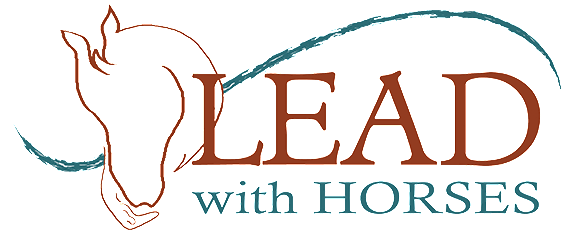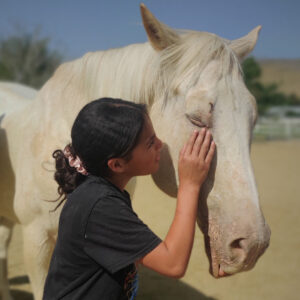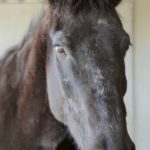Mindfulness and Self-Awareness: Foundations of Self-Care
It’s been a tough road since Covid came into our lives. With stress and other factors affecting our well-being, it’s no wonder we’re feeling the strain. Our physical and emotional states are intrinsically linked to the quality of our relationships with ourselves and the world around us. But, thankfully, more and more people are waking up to just how important our mental well-being is and giving it higher priority. There’s a wealth of research out there on how to improve and maintain well-being, and it’s heartening to see so many people taking it more seriously.
We can all understand that maintaining good mental health is closely tied to being mindful and self-aware, so we want to fully grasp the meanings of these concepts and how they are different yet interconnected. We also want to arouse our own curiosity to pause and get a closer look at our inner comings and goings. First, we go with the basics.
What Is Mindfulness?
Mindfulness not only makes it possible to survey our internal landscape with compassion and curiosity but can also actively steer us in the right direction for self-care. Bessel van der Kolk
Mindfulness is the state of being completely aware and present in this very moment. This involves being conscious of what you are thinking, feeling (emotionally), your surroundings, and your body sensations; especially, your body sensations.
A key aspect of practicing mindfulness is to notice what you are experiencing and to resist the urge to judge your thoughts as either good or bad. Mindfulness highlights the significance of being present at the moment rather than ruminating on the past or fretting about the future. You are very likely to find it hard to practice mindfulness because of being hard-wired to be connected with stress and anxiety. Emotions such as anger, sadness, fear, and other distractions may prevent you from sitting fully in the present. Trust that these are the exact signs that you are in need of developing skills in being mindful.
It’s common to see mindfulness and self-awareness used side by side and even interchangeably. But mindfulness is not the same as self-awareness.
What is Self-Awareness?
Self-awareness is when you have conscious knowledge and understanding of your own self, including your thoughts, emotions, personality traits, and feelings. It involves recognizing your strengths and weaknesses. Being self-aware allows you to anticipate situations that may cause negative emotions, so you can plan ahead and remain calm. Those who are skilled in self-awareness are able to align their thoughts and behaviors with their personal values.
Mindfulness Vs Self-Awareness
Mindfulness and self-awareness are closely related, but they are not the same.
Mindfulness is based on introspection, i.e. your own thoughts and feelings. With mindfulness, we acknowledge what is going on in our internal world at that very moment. No matter what thoughts, feelings, or sensations come to you, at any given time, you acknowledge their presence and then simply allow them to come and go. Being indifferent to your thoughts, feelings, sensations, or images that arise is the crucial property of mindfulness.
Looking inward while accepting the world around you is the essence of self-awareness. This means taking the time to examine your negative thoughts and emotions, understanding how they affect you, and learning how to keep them in a realistic perspective.
Mindfulness teaches you to take a non-judgmental approach to thoughts, feelings, sensations, and images at that moment. Self-awareness, on the other hand, is a skill that impels you to be objective about yourself, knowing your strengths, weaknesses, and vulnerabilities. Your thinking and acting are in line with your personal principles.
Why are These so Important?
Mindfulness and self-awareness are knowing yourself and fully understanding your inner world. This is undoubtedly a good thing. But are these really that central to the self-development of a person? The answer is overwhelmingly YES.
Being immersed in both mindfulness and self-awareness will:
- Have a positive impact on all aspects of your life, including interpersonal relationships, career, personal growth, etc;
- Help you regulate your emotions;
- Helps you in decision-making;
- Allow you to improve your relationships with family, friends, co-workers, and everyone else in your life;
- Boost your confidence and help you gain wisdom;
- Improve your leadership and communication skills;, and
- Help make you a better listener.
At LEAD with Horses, one of our primary objectives is to assist our clients in developing these skills in the presence of our Healing Herd. We have a multitude of tasks and games designed specifically for this purpose. Being prey animals, horses must be present at the moment while simultaneously being ready to bolt when a predator is sensed to be close by. So, the horses are naturally adept at being fully self-aware and in sync with their surroundings.
It has been observed that horses display remarkable skill in practicing mindfulness, as they have an innate ability to live in the present moment. Their perceptions are attuned to our subtle body language and emotions, which enables them to reflect our feelings. When we are beset by anxiety, stress, or intense emotions, horses tend to mirror these emotions back to us. This objective feedback from horses is a valuable means of gaining insight into our own selves and can help us to develop a deeper understanding of our own emotions and thought processes.



